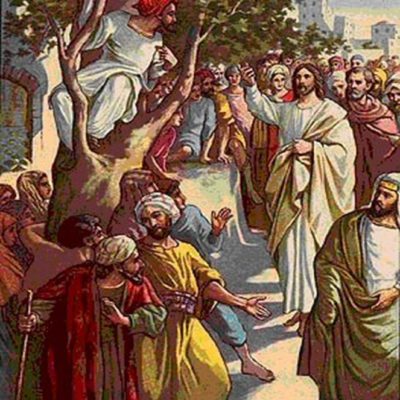The Theology of Arminianism

Introduction
Arminianism is a school of Protestant Christian theology that holds the Christian doctrine that salvation was brought about by Jesus Christ. It was founded by Jacobus Arminius who was a Dutch theologian. Most mainstream Protestantism and Evangelicalism accept Arminianism because of the influence of John Wesley and can be found distinguished within the Methodist movement.
Arminianism doctrine states that salvation is accomplished through the combined effort of God making the initiative action and the response of man, which makes the focus on man response as the determining factor for saving grace. They further believe the atonement of Jesus was for all people and the elect of God is conditional on their faith in Jesus Christ.
Arminianism is closely related to Calvinism and the Reformed Theology when the issues derived from predestination are removed. Although they share history and many doctrines, Arminianism opposes Calvin’s doctrine of predestination, which places them on opposite ends concerning this belief. (Moreau. 2000). Wesleyan Arminianism is identical with Methodism. They also reject the concept of original sin.
History
The founder of Arminianism was Jacobus Arminius, who was a Dutch minister and theologian in the 17th century. Jacobus Arminius rejected the teaching of making God the author of sin. Jacobus Arminius suggested the election of God was for believers which was conditional on faith. This idea was challenged by the Dutch Calvinists.
The Founder, Arminius, lived during the revolt of the Netherlands against the domination of Spain, a conflict led by William Prince of Orange, conducted intermittently from 1566 to 1609. During this time, the Dutch Reformation was taking shape in the Netherlands. (Moreau. 2000).
Jacobus Arminius was born October 10, 1560 at Oudewater, Utrecht in the Netherlands. He was left fatherless as an infant and his mother was left a widow with small children to raise. Theodorus Aemilius, the local priest, adopted Jacobus and sent him to school at Utrecht. Jacobus lost his mother when she was slain during the Spanish massacre of Oudewater, in the Netherlands in 1575. (Moreau. 2000).
Jacobus Arminius studied theology under Theodore Beza at Geneva Switzerland in 1582. He was ordained in 1588 and called to be a pastor at Amsterdam. Jacobus became a professor of theology at Leiden in 1603. He died in Leiden on October 19, 1609. (Moreau. 2000).
The followers of Arminius called themselves the Remonstrants after the death of Jacobus Arminius and became dissenters of Calvinism in the Remonstrance of 1610 in Gouda, Netherlands. The State Generals of Holland requested the Remonstrants provide their doctrine of belief. They provided these Five Articles of Remonstrance: (Schaff. 1996).
Article I – That God, by an eternal, unchangeable purpose in Jesus Christ, his Son, before the foundation of the world, hath determined, out of the fallen, sinful race of men, to save in Christ, for Christ’s sake, and through Christ, those who, through the grace of the Holy Ghost, shall believe on this his Son Jesus, and shall persevere in this faith and obedience of faith, through this grace, even to the end; and, on the other hand, to leave the incorrigible and unbelieving in sin and under wrath, and to condemn them as alienate from Christ, according to the word of the Gospel in John 3: 36: “He that believeth on the Son hath everlasting life; and he that believeth not the Son shall not see life; but the wrath of God abideth on him,” and according to other passages of Scripture also. (Schaff. 1996).
Article II – That, agreeably thereto, Jesus Christ, the Savior of the world, died for all men and for every man, so that he has obtained for them all, by his death on the cross, redemption, and the forgiveness of sins; yet that no one actually enjoys this forgiveness of sins, except the believer, according to the word of the Gospel of John iii. 16: “God so loved the world that he gave his only-begotten Son, that whosoever believeth in him should not perish, but have everlasting life”; and in the First Epistle of John ii. 2: “And he is the propitiation for our sins; and not for ours only, but also for the sins of the whole world.” (Schaff. 1996).
Article III — That man has not saving grace of himself, nor of the energy of his free-will, inasmuch as he, in the state of apostasy and sin, can of and by himself neither think, will, nor do anything that is truly good (such as having faith eminently is); but that it is needful that he be born again of God in Christ, through his Holy Spirit, and renewed in understanding, inclination, or will, and all his powers, in order that he may rightly understand, think, will, and effect what is truly good, according to the word of Christ, John 15:5: “Without me ye can do nothing.” (Schaff. 1996).
Article IV — That this grace of God is the beginning, continuance, and accomplishment of an good, even to this extent, that the regenerate man himself, without that prevenient or assisting; awakening, following, and co-operative grace, can neither think, will, nor do good, nor withstand any temptations to evil; so that all good deeds or movements that can be conceived must be ascribed to the grace of God in Christ. But, as respects the mode of the operation of this grace, it is not irresistible, inasmuch as it is written concerning many that they have resisted the Holy Ghost,—Acts vii, and elsewhere in many places. (Schaff. 1996).
Article V — That those who are incorporated into Christ by a true faith, and have thereby become partakers of his life-giving spirit, have thereby full power to strive against Satan, sin, the world, and their own flesh, and to win the victory, it being well understood that it is ever through the assisting grace of the Holy Ghost; and that Jesus Christ assists them through his Spirit in all temptations, extends to them his hand; and if only they are ready for the conflict, and desire his help, and are not inactive, keeps them from falling, so that they, by no craft or power of Satan, can be misled, nor plucked out of Christ’s hands, according to the word of Christ, John 10: 28: “Neither shall any man pluck them out of my hand.” But whether they are capable, through negligence, of forsaking again the first beginnings of their life in Christ, of again returning to this present evil world, of turning away from the holy doctrine which was delivered them, of losing a good conscience, of becoming devoid of grace, that must be more particularly determined out of the Holy Scriptures before they can teach it with the full persuasion of their minds. (Schaff. 1996).
The Dutch Calvinists persuaded Prince Maurice of Nassau to examine the Five Articles and call a national synod at Dordrect. Prince Maurice removed the Arminian magistrates from office before calling the national synod. The Arminians were excluded from the Synod of Dort in 1618 when the Arminius and their followers were condemned and charged with heretics. The Arminians were removed from office, banished and even banished as well as sworn to silence. This did not last long…twelve years later the Holland government officially granted Arminianism protection as a religion. The hostility between the Arminians and the Calvinists continued. (Carey. 2008).
John Wesley was one of the leaders of the Methodist movement and supported Arminian theology. He disapproved of Calvinism. His father introduced him to Arminianism, but John embraced later it while he was in college. He was strongly against Calvin’s doctrine of condemnation of the soul to eternal damnation as well as the doctrine of election and predestination. John Wesley supported Arminianism because it emphasized that all people can be saved. Even today Methodism remains committed to the theology of Arminianism; which has become one of the central theological structures in America. Arminianism is also the foundation of the American Unitarianism denomination. (Carey. 2008).
Belief
The main code of belief of Arminianism is salvation can be lost. It states salvation is conditional upon continued faith. They believe if you lose faith you lose salvation. Arminianism believes God chooses those He knows ahead of time will accept Him. They believe God allows His grace to be resisted by those unwilling people to believe. (Carey. 2008).
Arminianism believes the death of Jesus Christ has satisfied the justice of God. The penalty for the sin of the elect are paid in full through the work of Jesus on the cross. The atonement of Christ is intended for all but requires faith to be effective. Arminianism believes justification can be obtained by absolute and perfect adherence to the law or by God imputation of the righteousness of Christ. (Carey. 2008).
Arminianism believes atonement is intended for all. They believe Jesus Christ died for all people, and attracts all people to Himself. They believe all people have the opportunity for salvation through faith. (Carey. 2008).
Arminianism believes depravity, or moral corruption, it is in this moral corruption state the free will of man is weakened, lost and destroyed. They believe only Divine grace is all that can save man in this weakened position. (Carey. 2008).
Arminianism believes the grace of God acts on all people to convict them of the Gospel, to draw them towards salvation, and enables the possibility of faith. They believe the offer of salvation through grace can be freely accepted or freely denied. They believe men have free will toward accepting the Gospel of Jesus Christ and God. They believe once one becomes a believer, then God regenerates them to enable the believer to continue believing. (Carey. 2008).
References:
Edited by Carey, Hilary M. and Gascoigne, John. (2008). Church and State in Old and New Worlds Brill’s Series in Church History, Volume 51. Proceeding of a workshop held Dec. 2008.
Moreau, A. Scott; Netland, Harold and Charles van Engen. (2000). Evangelical Dictionary of World Missions, Baker Reference Library. Grand Rapids, MI; Carlisle, Cumbria, UK: Baker Books.
Schaff, Phillip. (1996). The Creeds of Christendom, Volume 3, Baker Books, Grand Rapids, MI.
Cite Article Source
MLA Style Citation:
Holstein, Joanne “The Theology of Arminianism:.” Becker Bible Studies Library May 2015.<https://guidedbiblestudies.com/?p=2805,>.
APA Style Citation:
Holstein, Joanne (2015, May) “The Theology of Arminianism:.” Becker Bible Studies Library. Retrieved from https://guidedbiblestudies.com/?p=2805,.
Chicago Style Citation:
Holstein, Joanne (2015) “The Theology of Arminianism:.” Becker Bible Studies Library (May), https://guidedbiblestudies.com/?p=2805, (accessed).


